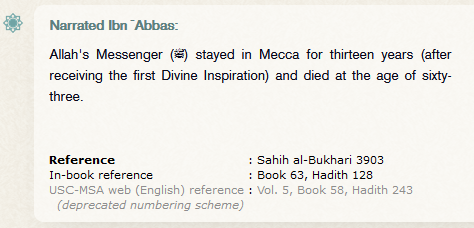
Can we take knowledge from those that aren't Salafi?
-=[Short-Thread]
There seems to be an opinion floating around among Salafis that material from one that isn't a Salafi should be boycotted, his dawah should be ignored, and he should be shunned.
-=[Short-Thread]
There seems to be an opinion floating around among Salafis that material from one that isn't a Salafi should be boycotted, his dawah should be ignored, and he should be shunned.
It has gotten so bad that any Salafi that shows signs that he's "off the manhaj" should also face a similar fate. Ironically, this isn't how the Salaf were.
Rather, if you return to the Saheehain, you will find tons of hadiths from truthful innovators.
Rather, if you return to the Saheehain, you will find tons of hadiths from truthful innovators.
Moreover, some innovators were seen by our Salaf as experts in tafseer and fiqhi.
Yahya bin Sa'eed Al-Qattan would laugh at those that would boycott them and would say: What will he do with Qatada (Qadari), Omar bin Thar, Ibn Abi Rawwad (both Murji'a)?
Yahya bin Sa'eed Al-Qattan would laugh at those that would boycott them and would say: What will he do with Qatada (Qadari), Omar bin Thar, Ibn Abi Rawwad (both Murji'a)?
Perhaps those that are hesitant should test themselves and reject open innovators like Qatada and Abdul-Razzaq and toss away their hadiths from the Saheehain, or perhaps the works of Ibn Hajar should be burned?!
Even the strictest Salafi shaikh would mock such a suggestion.
Even the strictest Salafi shaikh would mock such a suggestion.
Somewhere along the line, we started to assume that the best innovator is lower than the biggest Salafi fasiq. This line of thinking should be revisited, for it is unfathomable that a pillar of Islam like Qatada is lower in status than a fasiq Salafi.
• • •
Missing some Tweet in this thread? You can try to
force a refresh















